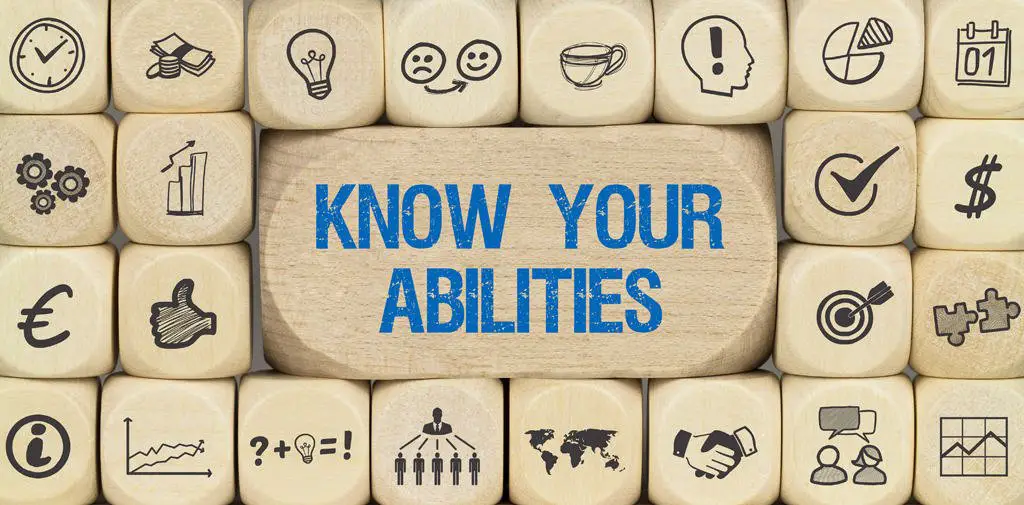What Is Self Esteem?

Self-esteem is the acceptance, respect, confidence and satisfaction that you have in yourself as a person. It is based on an internal image of ourselves that we have, consciously and subconsciously. Self-esteem is a concept that has been highly linked to health and one’s overall well-being. To most people it is more than half of what we need to be able to live well so we do our best to improve our esteem. But what exactly is self-esteem?. Is this the same as confidence or is it something that we should further understand to enhance our self esteem?.
Psychology Today defines self-esteem simply as one’s self-judgement. It can be differentiated into two types: the “trait” self-esteem, which is person’s inherent level of self-esteem, and the “state” self-esteem, which is dependent on the relative success or failure of a relevant or personal goal (James, W., 1980).
It has become conventional wisdom that people with high self-esteem are set to succeed in life. It’s one of those inevitable things that you might have dealt with at least once in your life, possibly through tough personal experiences or from lessons in school.
Indeed, you will need to have a high level of self-assurance and confidence to get through the hardships that you have to experience to achieve your ultimate goals in life: be it with your relationships or your career. This is why motivational phrases often go along the lines of “Believe in Yourself” or “Be Proud of Yourself” – because your level of self-esteem can literally make or break your biggest life decisions.
You might also know some people who exhibit signs of low self-esteem: the lack of social skills, self-neglect, pessimism. Fortunately, it’s never too late for anyone to work on their self-esteem and understanding how it works is the first step to improving it.
Self Esteem Definition According to Self Esteem Experts
Nathaniel Branded definition of self esteem: as the confidence in one’s ability to think, to cope up with the basic ups and downs of life, and one’s confidence in his or her right to be successful and happy.
On the other hand, Diane Frey and Jesse Carlock’s definition of self esteem, is that it is one’s evaluation, of the emotional, intellectual, and behavioral aspects of his or her self-concept. Lastly, Connie Paladino defined it as a state of mind that addresses how you feel and think about yourself and others which can be measured by the way you act. Notice how the last two definitions of self esteem are a little less detached from having a positive idea or feeling towards the self.
In the English language, there are at least two popular synonyms for self esteem. One is “self-worth” which carries Paladino’s, Carlock’s and Frey’s self esteem definitions. On the other hand, another possible synonym for self esteem is “self-love” which if translated into the French, the language of Jean-Jacques Rousseau, could lead into two more meanings, thus versions, of self-love.
One translation of “self-love” is “amour-propre.” According to Rousseau, this is the form of self-love which depends on the opinion of others. Thus, we could say that the more a person receives the approval of others, the more this person begins to have a higher self-esteem. However, Rousseau and others who predated him contrasted this to what they say as the more primitive form of self-love which is “amour de soi.” Amoir de soi is the form of self-love that is independent of others. This, as they say, is the form of self-love that humanity shares with animals and predates even before we humans came together and form society.
We begin to create our internal image in childhood based on our interactions with others and our environment. Especially the signals and feedback we receive from our parents at first. Then, from our performance in school and sports and how likable our childhood friends, family members and perhaps our siblings make use feel.
During these formative times, if we receive negative feedback we may later on suffer from low self esteem in adulthood. This is harmful, because your self esteem will determine the way you interact with the world:
- Your personal identity, image and dignity.
- How you value, treat and take care of yourself.
- How you judge everybody around you.
- How you take decisions and handle relationships.
What Makes a Person’s Self-Esteem?
You might’ve noticed some people in your life who seem like they were born with high self-esteem. While its not entirely false that a person’s level of self-esteem is genetically influenced, there are dozens of factors that can define how a person developed their level of self-esteem.
- Genetic Disposition
Although the concept is still widely debated, many scientists believe that a part of a person’s development is influenced by their environment, while the other half is predetermined by their genes. While genes do not directly predetermine someone’s personality, people can inherit chromosomes that are linked to traits like agoraphobia, social anxiety, differences in blood flow and other conditions that contribute to an inherently low self-esteem.
- Childhood Upbringing
A person’s childhood is the most crucial time in the development of their personality, and that includes their self-esteem. The behavior of family, peers, and the events that happen in this period all influence how the child will see himself and the world once they reach adulthood.
For instance, a child that came from a shaky household is more likely to suffer from a low sense of self worth than a child coming from a stable and reassuring family. Bullying done by their peers is also detrimental to a child’s self-confidence, and you can notice this in adults who have experienced bullying during their formative years.
It is healthy to feel good about you, but self love like narcissism is a curse as much as low self-esteem can be. When children are raised in negative or abusive homes or homes where families don’t communicate well, low self-esteem can develop and lead to other mental health issues such as:
- depression,
- substance abuse,
- relationship and social issues.
If your self-regard is evaluated on the way others perceive you and you already perceive yourself negatively you will only see the negative and ignore any positives.
- Society
The pressures of conforming to society’s ideals can greatly lower one’s self-esteem, especially if a person is insecure with their individuality. We are constantly surrounded by mediums such as television, magazines, and social media, which are all highly influential among impressionable people – and this influence is powerful enough for people to follow whatever they see that is “trendy” or “cool”.
The fear of social rejection is the number one reason why people constantly strive to achieve these projected societal ideals. This constant quest to conform and be accepted by their peers is a major stressor that leads to low self-esteem.
- Beliefs
Some religions or beliefs systems have teachings that purposefully devalues a person’s self-worth, such as preaching that a person is inherently bad or sinful, and that they must do certain things for repentance. Meanwhile, some religions create a positive impact on an individual’s self-esteem by instilling a sense of purpose and belonging.
- Health
A person’s overall physical and mental health is a major factor in how secure they feel about themselves. Being in tune with your body, mind, and spirit helps give an extra confidence boost when dealing with the stresses of your daily life. Meanwhile, a body and soul that isn’t maintained well will reflect through the individual’s sense of self-worth.
What is Low Self-Esteem?
Low Self Esteem is a negative picture of oneself that we might confused with criticism. But it isn’t that; and since criticism is healthy, if a person starts resisting being self-critical this can lead to tremendous social interaction problems.
Possible results of low self esteem come from a poorly tended person,l ack of confidence, depression, and insecurity in intimate relationships. Low self esteem might be caused by abuse, perfectionism, severe criticism, or being laughed at, ignored, or ridiculed.
Try . Building Self Esteem to feel good about yourself , be more confident and have a positive attitude. This download will help you to be more objective about your strong points, have more confidence in your abilities and think more positively about life generally.
What does low self-esteem look like in the real world?
Depression is a powerful symptom, both physically and emotionally. We may have weight issues, whether obesity or anorexia. Sometimes we feel a lack of control in our lives, so we try to control the one thing we can, and that is what we put into our bodies. If we are told as children that we are unattractive or too heavy, we may become even heavier. Conversely, if we are always told what to do and when to do it, we may lean toward anorexia to show we can control something others can’t. We tend to isolate ourselves to avoid confronting those negative feelings as much as possible.
In some cases a person may develop anxiety disorders that reflect that fear of the negative. Anxiety disorders symptoms include among many other symptoms:
- unreasonable fears
- difficulty breathing,
- uncontrollable shaking,
- and sense of panic.
Of course, not all individuals show any outward signs of low self esteem. They may live a life that feels perfectly normal to them. If they drink alcohol or use other substances, they may not recognize that something is not right about the amounts they consume or realize that their thinking processes are exaggerated, leading them to more potential problems. Indeed, they may elect to drink alone rather than in public places so that others cannot see them out of control.
What is a healthy Self-Esteem and why is so important?
The importance of a healthy self esteem cannot be underestimated for the foundation of your existence. It defines how you perceive yourself and life in general. It means to assume responsibility, live consciously, respect others, and take care of yourself. Healthy self esteem enables you to be proud without being overbearing, approach your circumstances with a positive attitude, know you are worthy to realize your dreams, understand that you deserve a joyful life, and make choices that are supportive instead of defeating. When I was a child I learned that other people were always more important than me. My parents didn’t tell me this with words, but taught me by example.
My own journey into better self esteem began many years ago when I made the commitment to value myself without being self-centered. Building your esteem for me is an internal process that you can start creating now by:
- Living with more conscious awareness.
- Taking responsibility for your life and changing your perceptions toward yourself and others.
- Forgiving the past to move on with the life you deserve.
Self esteem plays a great role in one’s life. And even though, science still hasn’t made a crystal clear conclusion on how self esteem affects a healthy life, its effect can be clearly seen such as in the cases of emergency patients that have a strong will to survive. As Franz Alexander said it back in 1960’s, the fact that the mind rules the body – no matter how it has been neglected by medicine and biology – is the most fundamental fact that we know about the process of life.
Assessing Levels of Self-Esteem
If you’re curious as to how you fare in the self-esteem department, psychologists have formulated plenty of ways that can help you define how high or low is your level of self-esteem. Take note, however, that these assessment tools are flawed, and results should not be taken as the absolute truth. It’s highly recommended that you take multiple tests to compare between results and use them as tools for self-improvement.
(If you feel that your low self-esteem is debilitating, it is highly recommended that you consult a psychologist for a professional assessment.)
1) The Rosenberg Scale
The Rosenberg Self-Esteem Scale is one of the most widely-used measures of self-esteem, thanks to its simplicity as compared to other scales. It contains 10 items that a respondent will answer on a scale from 1 (Strongly Agree) to 4 (Strongly Disagree), with some of the items being reverse-scored. Higher scores indicate low self-esteem, and vice versa.
The Rosenberg scale is considered highly reliable and consistent, which is why it has become the most cited scale for measuring self-esteem. The 10 items used for this scale are:
- On the whole, I am satisfied with myself.
At times I think I am no good at all.
3. I feel that I have a number of good qualities.
4. I am able to do things as well as most other people.
5. I feel I do not have much to be proud of.
6. I certainly feel useless at times.
7. I feel that I’m a person of worth.
8. I wish I could have more respect for myself.
9. All in all, I am inclined to think that I am a failure.
10. I take a positive attitude toward myself.
2) The Coppersmith Self-Esteem Inventory
The Coppersmith Self-Esteem Inventory is the second most widely used measure of self-esteem. It contains 50 items that the respondent has to associate with given phrases such as “like me” or “not like me”, according to what best represents their feeling about the given sentence.
Enhancing Your Self-Esteem
Improving your self-esteem takes a lot of work and dedication, as you’ll need to willingly get out of your comfort zone. Aside from taking special classes, you can begin by switching up a few things in your life – be it through your mindset, habits, and daily routine:
- Exercise regularly.
- Wake up early.
- Do what makes you happy.
- Let go of little mistakes, everybody makes them.
- Surround yourself with supportive people.
- Be less critical of yourself.
Although self-esteem is important in sustaining a good level of mental health, it’s perfectly natural if you feel insecure every now and then. A high self-esteem won’t solve all your problems and breeze you through life’s struggles. In fact, there is such a thing as a self-esteem that’s TOO high!
But self-esteem will definitely help you stay strong through the countless challenges you will face in life. Sometimes, self-esteem is even built through these hardships. It’s a long process, but achieving the right level of self-esteem is never impossible!
Self esteem and confidence
A person with a healthy self esteem has the confidence to seek what they want without causing another person to feel unworthy. Confidence is really what a healthy self esteem looks and feel like. Confidence is often a quiet thing that is sensed by others. When you enter a room others will feel the presence of confidence and actually gravitate toward the confident person. When we note that a person is rather friendly and personable, it the sense of confidence to which we are attracted. Standing tall and delivering a grand smile is confidence. Allowing a person to cut in line is confidence. Sharing a table in a restaurant with a lone diner is confidence. Buying a stranger’s coffee is confidence. It may be hard to smile at first and risk being seen, but in time that recognition will look and feel right to you because you really do have a lovely smile.
Books On Self Esteem











Quotes About Self Esteem
[perfectpullquote align=”full” bordertop=”false” cite=”” link=”” color=”” class=”” size=””]Low self-esteem is like driving through life with your hand-break on. Maxwell Maltz [/perfectpullquote]
[perfectpullquote align=”full” bordertop=”false” cite=”” link=”” color=”” class=”” size=””]Remember always that you not only have the right to be an individual, you have an obligation to be one. Eleanor Roosevelt You yourself, as much as anybody in the entire universe, deserve your love and affection. Buddha [/perfectpullquote]
[perfectpullquote align=”full” bordertop=”false” cite=”” link=”” color=”” class=”” size=””]Self-care is never a selfish act—it is simply good stewardship of the only gift I have, the gift I was put on earth to offer to others. You have been criticizing yourself for years, and it hasn’t worked. Try approving of yourself and see what happens. Louise Hay [/perfectpullquote]
[perfectpullquote align=”full” bordertop=”false” cite=”” link=”” color=”” class=”” size=””]People who want the most approval get the least and the people who need approval the least get the most. Wayne Dyer[/perfectpullquote]
[perfectpullquote align=”full” bordertop=”false” cite=”” link=”” color=”” class=”” size=””]Most fears of rejection rest on the desire for approval from other people. Don’t base your self-esteem on their opinions. Harvey Mackay [/perfectpullquote]
[perfectpullquote align=”full” bordertop=”false” cite=”” link=”” color=”” class=”” size=””]There is overwhelming evidence that the higher the level of self-esteem, the more likely one will be to treat others with respect, kindness, and generosity. Nathaniel Branden[/perfectpullquote]
[perfectpullquote align=”full” bordertop=”false” cite=”” link=”” color=”” class=”” size=””]Altruism raises your mood because it raises your self-esteem, which increases happiness. Plus, giving to others gets you outside of yourself and distracts you from your problems. Karen Salmansohn[/perfectpullquote]
[perfectpullquote align=”full” bordertop=”false” cite=”” link=”” color=”” class=”” size=””]Self-esteem is made up primarily of two things: feeling lovable and feeling capable. Lovable means I feel people want to be with me. They invite me to parties; they affirm I have the qualities necessary to be included. Feeling capable is knowing that I can produce a result. It’s knowing I can handle anything that life hands me. Jack Canfield [/perfectpullquote]
Resources
Techniques to improve self esteem









